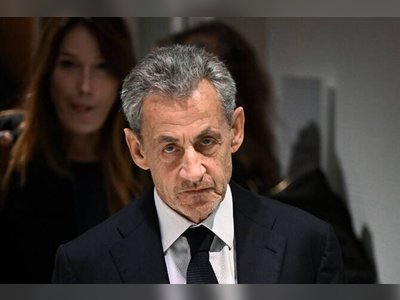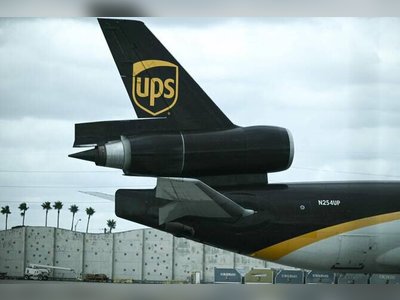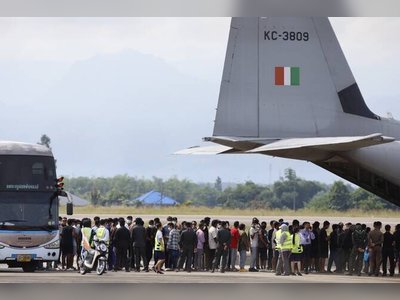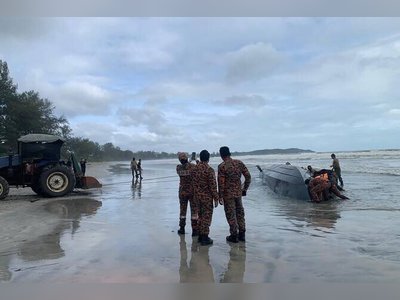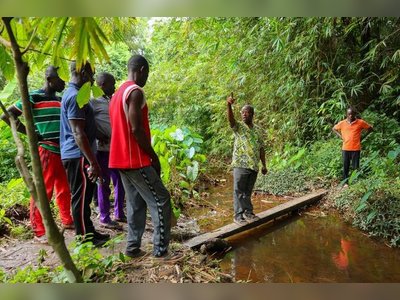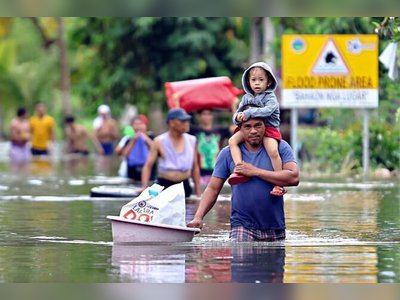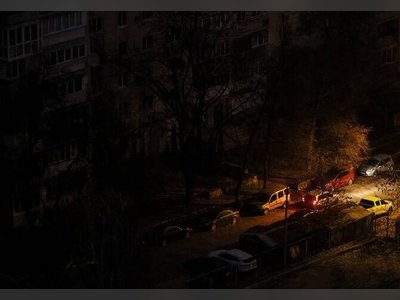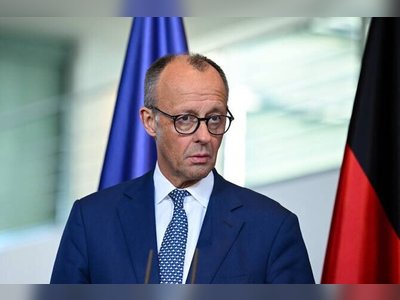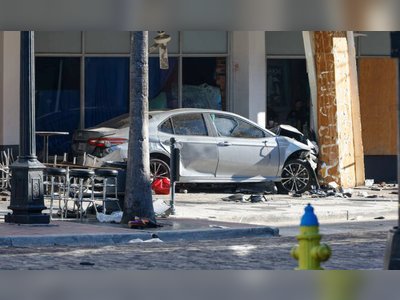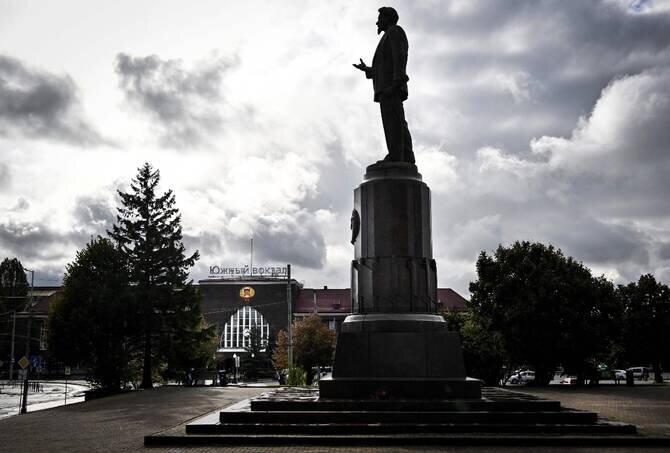
Russia's Kaliningrad Faces Economic and Isolation Challenges Amid Tensions
Kaliningrad, the isolated Russian exclave, faces economic hardships due to its severed ties with EU neighbors and physical separation from the rest of Russia.
In the heart of rainy Kaliningrad, a Russian factory worker named Alexander displays a confident demeanor.
Despite being economically affected by its isolation and surrounded by NATO countries Poland and Lithuania, both of which have been staunch supporters of Ukraine since February 2022, locals and officials in the area maintain a brave front.
The Baltic states surrounding Kaliningrad have been at the forefront of backing Ukraine in its conflict with Russia.
Alexander claims that Poland and Lithuania are seeking to demonstrate their strength and reinforce their borders.
However, he asserts that his city will not surrender, taking pride in Russia's superior military power, aligning with the Kremlin's criticism of NATO.
Russian President Vladimir Putin has long accused NATO of breaking a supposed promise not to expand eastwards, a claim dismissed by Ukraine and Western powers.
Poland and Lithuania have effectively sealed their borders to Russians, except for limited exceptions.
Both countries have reported instances of Russian jets violating their airspace in recent weeks.
Polish President Karol Nawrocki expressed his belief that Russia is prepared to strike other countries following NATO's interception of Russian drones flying through Polish airspace.
Kaliningrad, formerly known as Konigsberg and renamed after World War II, holds strategic importance for Moscow.
It houses the Russian Baltic Fleet and Iskander ballistic missiles, which have been used in attacks on Ukraine.
The regional governor did not respond to an interview request from AFP.
Locals, like Marina, a 63-year-old clothing store worker, dismiss concerns from EU neighbors by stating that they should focus on their own problems.
She expresses full confidence and protection in Kaliningrad, unaffected by NATO's presence.
Anna Dmitrik, a guide who leads Russian tourists to the tomb of philosopher Immanuel Kant, shares Marina's relief over the lack of targeted drone attacks on the region, expressing calm for now.
Despite this, reminders of the ongoing conflict are prevalent throughout the city.
Banners encourage men to join the fight in Ukraine as part of Russia's 'victorious army,' and giant Z symbols representing Moscow's forces in Ukraine adorn buildings.
However, beneath their defiance, residents grapple with feelings of increased isolation and deteriorating conditions since February 2022.
Due to being banned from EU airspace, flights connecting Kaliningrad to the rest of Russia must take a detour via the Gulf of Finland.
The train linking it to Moscow is sealed as it crosses Lithuania, requiring Russian passengers to possess specific visas or transit permits.
Additionally, Vilnius has closed its border with Belarus for at least a month following the intrusion of balloons carrying thousands of contraband cigarettes into the EU state.
Before the conflict, traveling to Poland for shopping or leisure was possible, and buses and trucks operated regularly.
Now, everything is more expensive, and all borders are practically sealed off due to limited entry options.
Inflation has surged across Russia due to the Ukraine conflict, with Kaliningrad experiencing particularly challenging logistics issues.
Most petrol stations near the border have either empty fuel supplies or remain closed.
The once-frequented Baltia shopping mall is now sparsely visited.
The economic situation in Kaliningrad is described as dire by residents like Irina, a saleswoman at the mall, who expresses difficulties in bringing goods from the rest of Russia due to complicated logistics.
Everything has become significantly more expensive.
Despite being economically affected by its isolation and surrounded by NATO countries Poland and Lithuania, both of which have been staunch supporters of Ukraine since February 2022, locals and officials in the area maintain a brave front.
The Baltic states surrounding Kaliningrad have been at the forefront of backing Ukraine in its conflict with Russia.
Alexander claims that Poland and Lithuania are seeking to demonstrate their strength and reinforce their borders.
However, he asserts that his city will not surrender, taking pride in Russia's superior military power, aligning with the Kremlin's criticism of NATO.
Russian President Vladimir Putin has long accused NATO of breaking a supposed promise not to expand eastwards, a claim dismissed by Ukraine and Western powers.
Poland and Lithuania have effectively sealed their borders to Russians, except for limited exceptions.
Both countries have reported instances of Russian jets violating their airspace in recent weeks.
Polish President Karol Nawrocki expressed his belief that Russia is prepared to strike other countries following NATO's interception of Russian drones flying through Polish airspace.
Kaliningrad, formerly known as Konigsberg and renamed after World War II, holds strategic importance for Moscow.
It houses the Russian Baltic Fleet and Iskander ballistic missiles, which have been used in attacks on Ukraine.
The regional governor did not respond to an interview request from AFP.
Locals, like Marina, a 63-year-old clothing store worker, dismiss concerns from EU neighbors by stating that they should focus on their own problems.
She expresses full confidence and protection in Kaliningrad, unaffected by NATO's presence.
Anna Dmitrik, a guide who leads Russian tourists to the tomb of philosopher Immanuel Kant, shares Marina's relief over the lack of targeted drone attacks on the region, expressing calm for now.
Despite this, reminders of the ongoing conflict are prevalent throughout the city.
Banners encourage men to join the fight in Ukraine as part of Russia's 'victorious army,' and giant Z symbols representing Moscow's forces in Ukraine adorn buildings.
However, beneath their defiance, residents grapple with feelings of increased isolation and deteriorating conditions since February 2022.
Due to being banned from EU airspace, flights connecting Kaliningrad to the rest of Russia must take a detour via the Gulf of Finland.
The train linking it to Moscow is sealed as it crosses Lithuania, requiring Russian passengers to possess specific visas or transit permits.
Additionally, Vilnius has closed its border with Belarus for at least a month following the intrusion of balloons carrying thousands of contraband cigarettes into the EU state.
Before the conflict, traveling to Poland for shopping or leisure was possible, and buses and trucks operated regularly.
Now, everything is more expensive, and all borders are practically sealed off due to limited entry options.
Inflation has surged across Russia due to the Ukraine conflict, with Kaliningrad experiencing particularly challenging logistics issues.
Most petrol stations near the border have either empty fuel supplies or remain closed.
The once-frequented Baltia shopping mall is now sparsely visited.
The economic situation in Kaliningrad is described as dire by residents like Irina, a saleswoman at the mall, who expresses difficulties in bringing goods from the rest of Russia due to complicated logistics.
Everything has become significantly more expensive.
